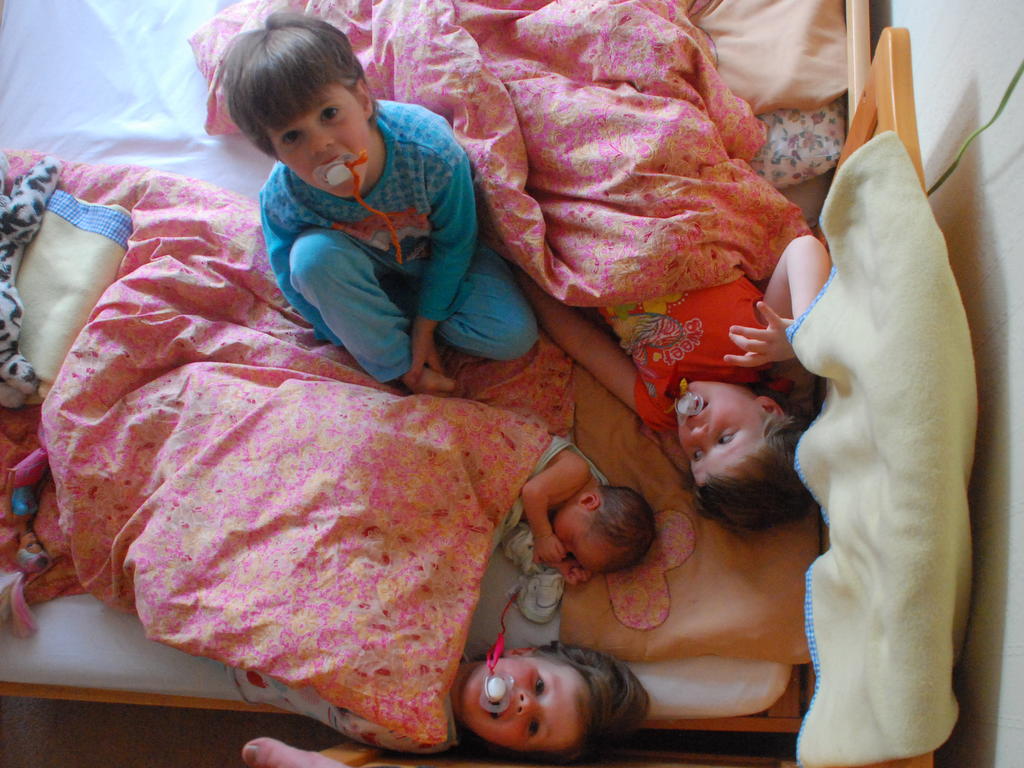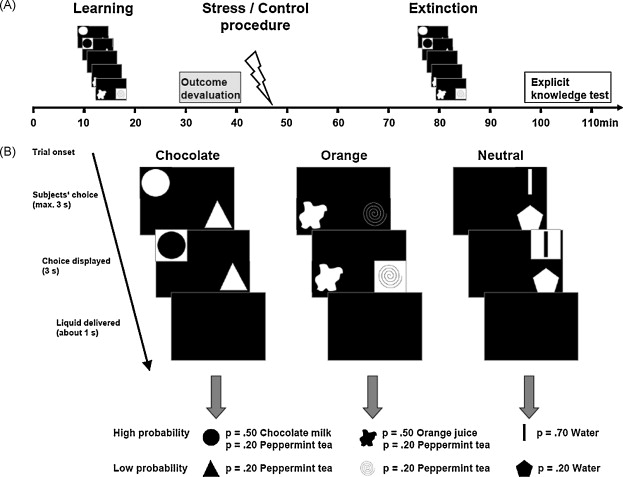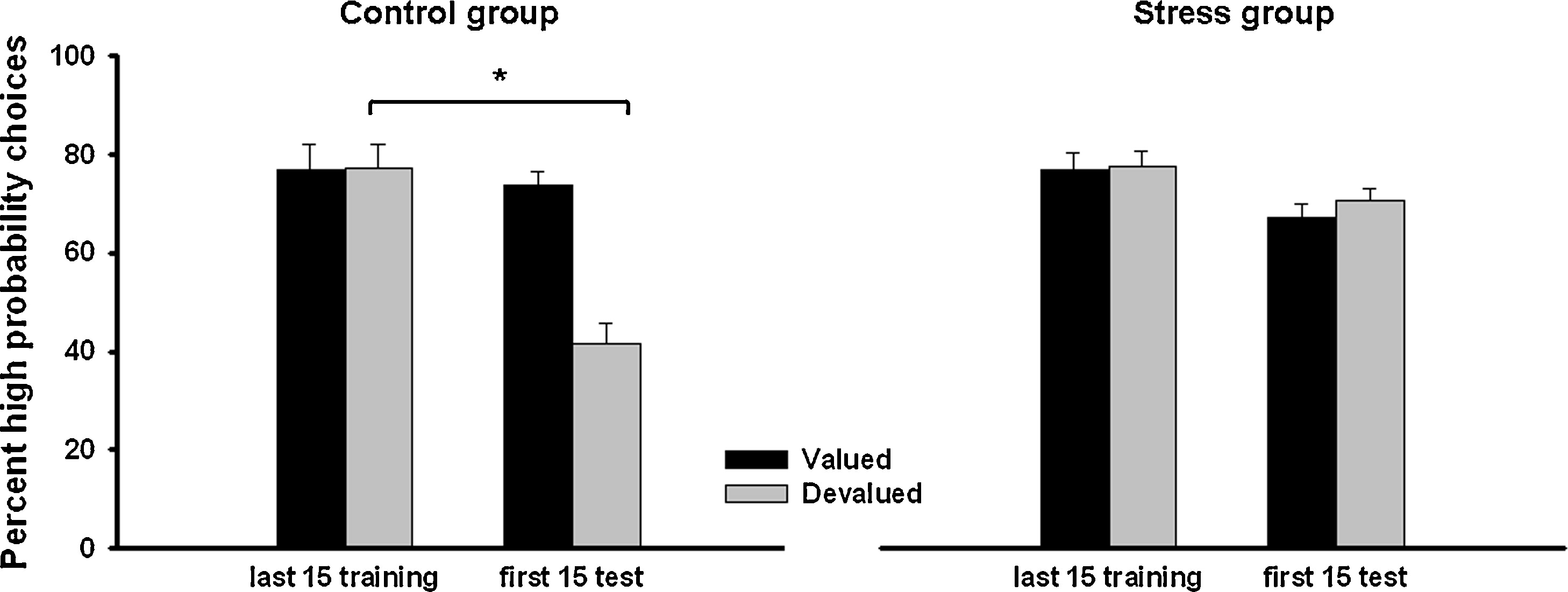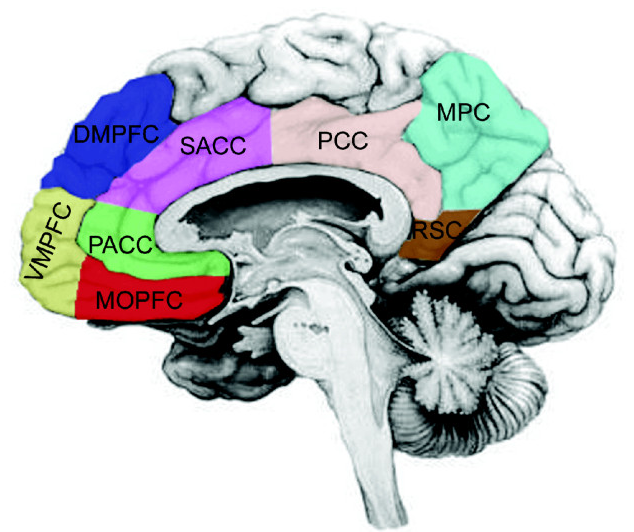Click here and press the right key for the next slide.
(This may not work on mobile or ipad. You can try using chrome or firefox, but even that may fail. Sorry.)
also ...
Press the left key to go backwards (or swipe right)
Press n to toggle whether notes are shown (or add '?notes' to the url before the #)
Press m or double tap to slide thumbnails (menu)
Press ? at any time to show the keyboard shortcuts

Goal-Directed and Habitual: Some Evidence
‘instrumental behavior itself involves two systems, the goal-directed and the habitual’
(Dickinson & Pérez, 2018, p. 12)
prediction?


‘instrumental behavior itself involves two systems, the goal-directed and the habitual’
(Dickinson & Pérez, 2018, p. 12)
prediction?
prediction: increasing stress will reduce the influence of your preferences
Evidence: Schwabe & Wolf, 2010

Schwabe and Wolf, 2010 figure 1

Schwabe & Wolf (2010, p. figure 6)
When stressed,
your preferences matter less:
habitual processes dominate.
How is this evidence for the dual-process theory of instrumental action?



How exactly do we derive that prediction?
Having two processes
allows you to make complementary
speed–accuracy trade-offs:
habitual processes are fast but limited, whereas goal-directed processes are more flexible but slower



more evidence
neurophysiology

‘[instumental] and habitual control have been doubly dissociated in two brain regions.
In the PFC, lesions of the prelimbic and infralimbic areas disrupt goal-directed and habitual behavior, respectively ...
These dissociations suggest that different neural circuits mediate the two forms of control’
(Dickinson, 2016, p. 184)
conclusion - three bits of evidence
- cognitive load (via stress) - Schwabe & Wolf (2010)
- [representation of contingency - Klossek, Yu, & Dickinson (2011)]
- neurophysiology - Dickinson (2016)